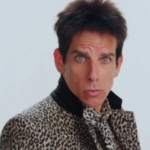Social media has created new cultural norms of requiring photographic evidence of life events to “prove” you experienced them. The common phrase “pics or it didn’t happen” is a strong indicator of this. The constant need for validation from others has consumed us and is depriving us of our uniqueness. In her article for Psychology Today, Beverly Flaxington writes “pressure to be socially accepted and celebrated can be too much to handle, and can adversely affect the self-esteem of many social media users.” This diminished self-esteem causes many people to overshare on social media, losing sight of what is appropriate to post and what isn’t. I believe that the phenomenon of dark selfies is just one small example of larger issue. Our relationship with our phones has gone too far, moving from an occasional flirtatious fling to a reliance that puts the importance of the superficial individual first.
I would like to share a personal anecdote to relate to this topic.
The day was March 10, 2017. I remember this day very clearly in my mind. It was one day before my 19th birthday, and I was spending the week in Poland as a part of my gap year program. At this point in the trip, our group was staying in a hotel in Krakow, a city in southern Poland, and had awakened at 5 am in order to drive for several hours to Auschwitz-Birkenau, the labor camp division of Auschwitz concentration camp. We stood in the blistering cold for hours as a tour guide described the horrific atrocities committed against human beings in this place. It was a surreal experience that I believe that I will never forget.
Following this, we had time to explore the premises away from the group for the remainder of the morning. I spent time walking through the gas chambers and felt an emptiness inside. It is truly an experience that is difficult to write about, as I do not know how to put such strong feelings into words.
- Image of the train tracks and entrance to Auschwitz-Birkenau labor camp. (Source – Wikipedia)
As I was finishing up the time I spent in the chambers, I witnessed something that caught me extremely off guard. A teenage girl who was at the camp with an Israeli tour group and likely 16 or 17 years old, stood outside the entrance to the chambers taking a selfie. She was making a “duck face”–a common pouty and silly expression one makes while taking a selfie–while holding up an Israeli flag in the photo. My first reaction was shock at how someone could think that was an acceptable action, but I then began to feel sadness about the depths to which our society has sunk.
- Example of a “duck face.” (Photo from film “Zoolander”)
Since the first day of ASTU, when Professor Luger mentioned that we would be reading about selfies at sites of trauma, I have thought back over this moment repeatedly. While reading Kate Douglas’s essay “Youth, trauma, and memorialism: The Selfie as Witnessing”, I struggled to relate to the concept in a way that wasn’t directly connected to this experience. I believe the ideas brought up in the essay regarding selfies becoming a form of second hand witnessing are very interesting and are worth a healthy conversation. However, due to my personal experience with this, I find it difficult to see dark selfies as an appropriate act, or even a legitimate form of witnessing.
This ties back to my original point that from our phones, we have become too self-obsessed as a society. The fact that people feel comfortable to stand at a site where hundreds of thousands of people’s lives were ripped away from them and put up a duck face is in my mind, disgraceful. I don’t want to come across as overly harsh, as I am not immune to making dumb mistakes on the internet. However, I fear that if we normalize dark selfies we may begin to lose an understanding of how to pay respects to sites of trauma such as Auschwitz.
Article referenced:
https://www.psychologytoday.com/blog/understand-other-people/201602/seeking-validation-online-doesn-t-bring-real-happiness

